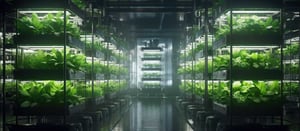FSSC 22000 CERTIFICATION:
At ASI, we emphasize FSSC 22000 (Food Safety System Certification 22000) because it reflects the evolving nature of food safety standards. We understand that maintaining a robust food safety management system is essential, and our role is to stay ahead of regulatory changes and industry best practices. FSSC 22000 is a comprehensive approach to food safety that integrates ISO 22000 requirements with additional sector-specific prerequisites, offering a globally recognized benchmark for the entire food supply chain.
No matter the type of food product or service, ALL organizations involved in the food industry are encouraged to implement a food safety management system that aligns with FSSC 22000 requirements. Auditors from certification bodies will look for compliance with these standards, assessing the organization’s ability to control food safety hazards and meet regulatory obligations. Failure to implement a proper food safety system can put your product, reputation, and business at risk.
WHAT IS A FSSC 22000 AUDIT?
An FSSC 22000 audit is a process used to assess whether a food safety management system (FSMS) meets the requirements of the FSSC 22000 certification scheme. The FSSC 22000 standard is based on ISO 22000, and it integrates additional requirements to ensure comprehensive food safety management for the entire food supply chain.
Types of FSSC 22000 Audits:
-
Stage 1 Audit (Preliminary Audit):
- This initial review evaluates the organization’s documentation, including the food safety management system, HACCP plan, and policies. It ensures the company is ready for the Stage 2 audit by identifying any gaps or non-conformities.
-
Stage 2 Audit (Certification Audit):
- The main audit where auditors assess the actual implementation of the food safety management system. They observe processes, interview employees, and review records to verify that the system meets FSSC 22000 requirements and is effectively managing food safety risks.
-
Surveillance Audits:
- Conducted annually after initial certification to ensure continued compliance. These audits confirm that the company maintains its food safety practices and addresses any non-conformities identified during previous audits.
-
Recertification Audits:
- Conducted every three years to renew the FSSC 22000 certification. This audit is similar to the initial certification audit and evaluates the overall effectiveness and continual improvement of the food safety management system.
The FSSC 22000 audit process aims to enhance food safety, ensure regulatory compliance, and build customer trust by demonstrating a commitment to high food safety standards.
FSSC 22000 OVERVIEW
|
ASPECT |
DETAILS |
| What is FSSC 22000 Certification? | A formal recognition that a company’s food safety management system (FSMS) complies with the requirements of FSSC 22000, a globally recognized standard based on ISO 22000. It integrates additional sector-specific requirements, ensuring a robust approach to managing food safety risks across the entire supply chain. |
| Purpose of FSSC 22000 | Ensures that food products are produced, processed, and handled safely, following stringent food safety management principles to control risks and prevent contamination throughout the food supply chain. |
| Industries Requiring FSSC 22000 |
|
| Key Areas Covered by FSSC 22000 |
|
| Certification Process |
Preparation (3-6 months): Develop and implement a food safety management system (FSMS). Audit (1-2 months): Conduct an audit by a certification body. |
| Duration | Certification valid for three years, with annual surveillance audits. |
| Surveillance Audits | Conducted annually to maintain certification. |
| Recertification | Required every three years, involving a comprehensive re-evaluation of the FSMS. |
| benefits of FSSC 22000 certification | Demonstrates commitment to international food safety standards, enhances brand reputation, improves regulatory compliance, and increases market access by meeting customer and regulatory expectations for safe food production. |
| ASI Audit | ASI conducts in-depth audits to assess FSSC 22000 compliance, identifying areas for improvement, verifying the effectiveness of the FSMS, and helping companies stay aligned with the latest food safety standards. |
| How ASI Helps | ASI's audits provide companies with a clear understanding of FSSC 22000 requirements, helping them strengthen their food safety management practices, improve operational efficiency, and maintain compliance, ultimately ensuring consumer safety and trust. |

Download the Latest Version
In March 2023, FSSC 22000 published version 6 of its Scheme, which is mandatory since 1 April 2024.

Request a Quote for FSSC 22000 Certification:
Our team will review your request and provide a detailed quote tailored to your specific requirements. We look forward to assisting you in achieving FSSC 22000 certification and enhancing your food safety management system.
HOW TO PREPARE FOR FSSC 22000 AUDIT.
Preparing for FSSC 22000 certification involves a comprehensive process to ensure that your organization meets the stringent food safety requirements of the standard. Here are the key steps to prepare:
1 - Understand the Requirements
Obtain and Study the Standards: Acquire copies of ISO 22000, ISO/TS 22002-1 (or other applicable prerequisite programs), and the FSSC 22000 additional requirements. Understand their requirements thoroughly.
Training: Consider training for key personnel on FSSC 22000 requirements and implementation. This could include workshops, seminars, or courses on food safety management systems.
2 - Conduct a Gap Analysis
Evaluate Current Systems: Perform a detailed assessment of your current food safety management system against the FSSC 22000 requirements. Identify areas of non-conformity or gaps that need to be addressed.
Document Findings: Create a report outlining the gaps and necessary actions to comply with FSSC 22000.
3 - Develop and Implement the Food Safety Management System
Create Documentation: Develop the required documentation, including food safety policies, procedures, work instructions, and records.
Establish Prerequisite Programs (PRPs): Implement PRPs such as cleaning and sanitation, pest control, allergen management, and traceability, as required by ISO/TS 22002-1 or applicable technical specifications.
Hazard Analysis and Critical Control Points (HACCP): Develop a HACCP plan, identifying critical control points (CCPs) and implementing control measures.4 - Engage and Train Employees
Employee Training: Train all employees on the new food safety management system, emphasizing their roles and responsibilities in maintaining food safety.
Awareness Programs: Conduct awareness programs to ensure that all staff understand the importance of food safety and are committed to following the procedures.
5 - Internal Audits
Conduct Internal Audits: Perform internal audits to assess compliance with FSSC 22000 requirements. Use these audits to identify any non-conformities and areas for improvement.
Corrective Actions: Develop and implement corrective actions to address any non-conformities identified during the internal audits.
6 - Management Review
Review Meetings: Conduct management review meetings to evaluate the effectiveness of the food safety management system. Discuss audit results, corrective actions, and any changes needed to improve the system.
Continuous Improvement: Use feedback from the management review to drive continuous improvement in your food safety management system.
7 - Select a Certification Body
Research Certification Bodies: Choose an accredited certification body with experience in the food industry and a good reputation.
Application Process: Submit an application to the chosen certification body and schedule the certification audit.
8 - Pre-Certification Assessment (Optional)
Pre-Audit Assessment: Some organizations opt for a pre-certification assessment by an external consultant or the certification body to identify any final gaps before the official audit.9 - Certification Audit
Stage 1 Audit: The certification body conducts an initial review of your documentation and readiness for the certification audit.
Stage 2 Audit: The certification body conducts an on-site audit to verify the implementation and effectiveness of your food safety management system. This includes interviews with employees, review of records, and observations of processes.
10 - Addressing Non-Conformities
Audit Report: Review the audit report from the certification body, which will outline any non-conformities or areas for improvement.
Corrective Actions: Implement corrective actions to address any non-conformities identified during the audit. Provide evidence of these actions to the certification body for review.
11 - Certification Decision
Certification Award: If all non-conformities are addressed satisfactorily, the certification body will grant FSSC 22000 certification.
Celebrate and Communicate: Announce your certification to customers, stakeholders, and the market to highlight your commitment to food safety.
12 - Maintaining Certification
Surveillance Audits: Undergo annual surveillance audits conducted by the certification body to ensure continued compliance with FSSC 22000.
Continuous Improvement: Regularly review and improve your food safety management system to maintain certification and adapt to any changes in standards or regulations.
FSSC 22200 CERTIFICATION
Frequently Asked Questions
Have Question? We are here to help
What is FSSC 22000 Certification?
FSSC 22000 (Food Safety System Certification) is a globally recognized certification scheme for food safety management systems. It is based on ISO 22000, ISO/TS 22002-1, and additional FSSC-specific requirements. It covers the entire supply chain, ensuring that food safety practices are applied from farm to fork.
Why should our business get FSSC 22000 certified?
FSSC 22000 certification demonstrates a commitment to food safety, helps comply with regulatory requirements, improves customer confidence, and can open up new market opportunities. It also enhances risk management and operational efficiency.
What are the main components of the FSSC 22000 certification scheme?
The main components include ISO 22000 (Food Safety Management System), ISO/TS 22002-1 (Prerequisite Programs for Food Manufacturing), and additional FSSC 22000-specific requirements.
How long does the FSSC 22000 certification process take?
The duration varies depending on the size and complexity of the organization. Typically, it can take several months from initial preparation to the final certification audit. This includes the time needed for implementing necessary changes and conducting internal audits.
What is the cost of FSSC 22000 certification?
Costs can vary based on factors such as the size of the business, the complexity of operations, and the chosen certification body. Costs typically include application fees, audit fees, and any necessary training or consulting services.
What happens during the FSSC 22000 audit?
The audit is conducted in two stages:
Stage 1 Audit: Review of documentation and initial evaluation.
Stage 2 Audit: On-site assessment of the implementation and effectiveness of the food safety management system. Auditors will examine records, interview employees, and observe operations.
What are the common challenges in achieving FSSC 22000 certification?
- Understanding and implementing the standard's requirements.
- Ensuring employee engagement and training.
- Maintaining thorough and accurate documentation.
- Managing the costs and resources needed for implementation.
Can FSSC 22000 certification be integrated with other management systems?
Yes, FSSC 22000 can be integrated with other management systems such as ISO 9001 (Quality Management) and ISO 14001 (Environmental Management), providing a comprehensive approach to organizational management.
What should we do if we identify a non-conformity during the audit?
If a non-conformity is identified, the organization must develop and implement a corrective action plan to address the issue. The certification body will review and verify the effectiveness of these actions during subsequent audits.
How can we choose the right certification body for FSSC 22000?
When choosing a certification body, consider factors such as their accreditation status, experience in the food industry, reputation, customer reviews, and the support services they offer.
